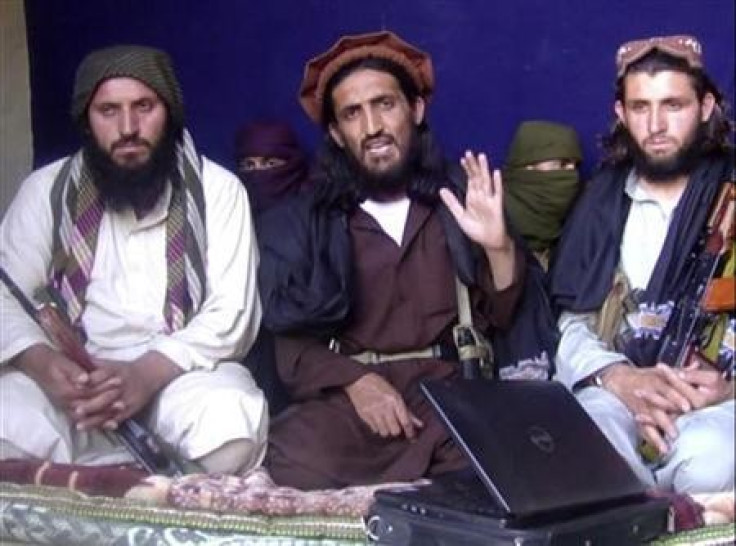Is Pakistan helping the Taliban by expelling British counter terrorism trainers?

Pakistan has expelled a team of at least 18 military advisers and trainers sent to help with the fight against the Taliban and Al-Qaeda, as the fallout from the US raid that killed Osama Bin Laden continues to rock relations between Islamabad and its western allies.
The Ministry of Defence (MOD) confirmed that at least 18 military advisers, deployed as part of a £15m programme to train the paramilitary Frontier Corps, have been withdrawn from Pakistan and most are already back in the UK.
Their removal is seen as an indication that following the 2 May Navy Seal raid in Abbottabad, which was conducted by the U.S without Pakistani consent, the relationship between Pakistan and the U.S, is worsening.
As the U.S announced they are preparing to slowly withdraw from Afghanistan, analysts were quick to question whether the next country on the list would be Pakistan. While the Obama administration has hinted as the possible complicity between some of the Pakistanis authorities and Al-Qaeda, the Pakistani's government has always vehemently denied any involvement with the terrorist organisation.
However, it has become more apparent in the last few years that while the Taliban regime in Afghanistan has been weakened by the intervention of foreign troops, Taliban groups operating from Pakistan were responsible for the surge of violence and violent conflicts in the neighbouring country.
Observers now fear that the inability of the Pakistan government to rapidly gain control over the most dangerous terrorist organisations in its territory could push the U.S to conduct further covert operations on its soil, which in turn could lead to the two countries to become more and more hostile towards each other.
Also, following the May 2 raid, the Pakistani population voiced their anger at what they say was an intrusive and disrespectful behaviour from the U.S and organised various demonstrations to protest against the operation.
Although British relations with Pakistan are warmer and less tense, observers insist that the Pakistani army's latest move proves that it is keen to demonstrate its independence from all western allies.
Since Bin Laden's death and as a response to the covert operation, Pakistan has sent home at least 120 U.S trainers, most of whom were engaged in training the FC. The British team, a mix of seasoned officers and NCOs, had been stationed at a British-funded FC base near the capital of Balochistan, Quetta.
The training scheme began last August and was scheduled to run until at least summer 2013 and the MoD has expressed it hopes to redeploy the team once the tensions abate.
In an email statement, a spokeswoman said the trainers had been withdrawn "on a temporary basis" at the request of the Pakistani government in response to "security concerns".
"The training teams will continue their own training and will be ready to redeploy at the first possible opportunity," she told the Bureau of Investigative Journalism.
The 60,000-strong FC, which is deployed along the length of the 1,600-mile border with Afghanistan, has long been in the frontline of Pakistani efforts to combat Taliban militancy and force Al-Qaeda away from its tribal havens, but one of the recurring problems is that its troops have repeatedly been considered under-trained and ill-equipped.
As they realised that for the Pakistani forces to be more efficient they needed more training, western allies have in recent years prioritised a multimillion pound effort to bolster their skills and equipment.
However, as the US-Pakistani relations fall to their lowest point in a decade, that programme has now virtually collapsed.
The country's military leadership issued a statement in which it disputed American claims of $15bn (£9.4bn) in aid over the past decade, and suggested that future US military assistance should be diverted to civilian economic programmes while it added that CIA drone strikes were "not acceptable under any circumstances."
The US says it wants to rebuild the relationship, deemed "too important to fail" but recently tensions have erupted at ground level as last week the Pakistani media reported that US trainers had clashed with base guards when prevented from retrieving personal effects after being ordered to leave. The US embassy in Islamabad denied the incident.
While the Pakistani government maintain that combatting terrorism remains its priority, those who will benefit the most from the withdrawal of western troops certainly will be the Pakistani Taliban. A further declining of the US-Pakistan or Pakistan-West relationship could prove dangerous for both countries and put their enemies at advantage. While Pakistan is making clear that it does not appreciate violations to its sovereignty and attempt to prove that it is very much still in charge of the country and its military, completely parting away from its western allies might not prove the best solution as the regime is far from being as stable and solid as it pretends to be.
© Copyright IBTimes 2024. All rights reserved.





